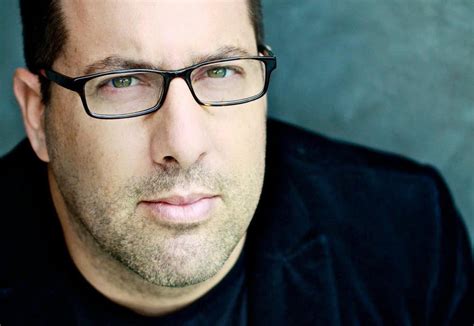A Quote by Paul Di Filippo
Quite often, intent on conveying how things can go wrong for a culture (science fiction) or an individual (horror) or all of magical creation (fantasy), works of fantastika often preclude comedy, because humor gets in the way of messages of doom or struggle.
Related Quotes
'Filk' is the folk music of the science fiction and fantasy community - you get parodies, you get traditional music that's had the words slightly modified, and you'll also get just original works that have been written about science fiction and fantasy works, or with science fiction and fantasy themes.
Science fiction is fantasy about issues of science. Science fiction is a subset of fantasy. Fantasy predated it by several millennia. The '30s to the '50s were the golden age of science fiction - this was because, to a large degree, it was at this point that technology and science had exposed its potential without revealing the limitations.
Much blood has also been spilled on the carpet in attempts to distinguish between science fiction and fantasy. I have suggested an operational definition: science fiction is something that COULD happen - but usually you wouldn't want it to. Fantasy is something that COULDN'T happen - though often you only wish that it could.
I find it interesting that authors of fantasy and science fiction novels are rarely asked if their books are based on their personal experiences, because all writing is based on personal experience. I may not have gone on an epic quest through a haunted forest, but the feelings in my books are often based on feelings I've had. Real-life events, in fantasy and science fiction, can take on metaphorical significance that they can't in a so-called realistic novel.
Science fiction is a weird category, because it's the only area of fiction I can think of where the story is not of primary importance. Science fiction tends to be more about the science, or the invention of the fantasy world, or the political allegory. When I left science fiction, I said "They're more interested in planets, and I'm interested in people."
I really wish that peoplewould just say, 'Yes, it's a comic. Yes, this is fantasy. Yes, this is Science Fiction,' and defend the genre instead of saying, 'Horror is a bit passe so this is Dark Fantasy,' and that' s playing someone else's game. So that's why I say I'm a fantasy writer and to hell with 'It doesn't read like what I think of as a fantasy'. In that case what you think of as a fantasy is not a fantasy. Or there is more to it than you think.
I actually prefer to work in as many different genres as possible as often as possible because I actually think the best way to be inspired and avoid any writers block or things like that is actually to be able to go from a comedy to an action to a horror to a adventure, that actually makes it easy for me to start over and get new ideas, and it keeps things interesting.
More than fantasy or even science fiction, Ray Bradbury wrote horror, and like so many great horror writers he was himself utterly without fear, of anything. He wasn't afraid of looking uncool - he wasn't scared to openly love innocence, or to be optimistic, or to write sentimentally when he felt that way.






































